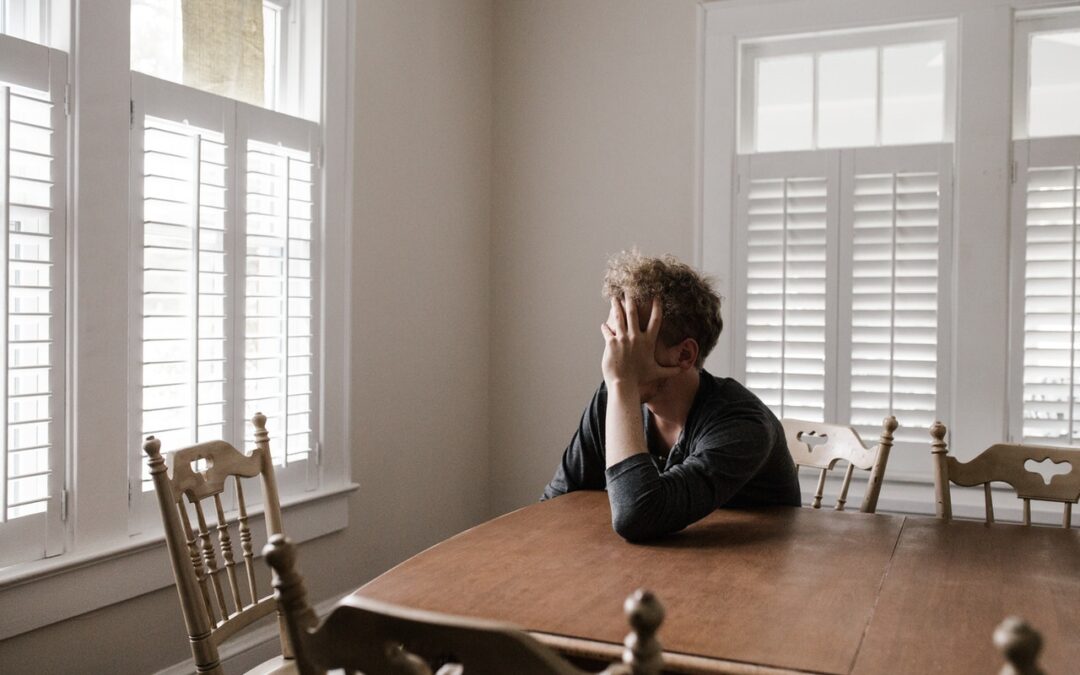For many of us, it feels as if this pandemic has been with us forever. When I watch a movie I can’t help but feel a bit uncomfortable when there’s a scene of a group of people chatting. “Where are their masks?!” I think to myself. Anymore, it’s only in movies where we see people without masks on. Such scenes seem out of place now.
And masks are just a small part of the changes we’ve seen over the last 6 months. Social distancing rules are posted in every store window and colored tape is measured out on every store floor. We are discouraged from connecting with others…and this can be discouraging.
The Effects of Being Lonely
Older adults, whose children have long left home, are at increased risk of becoming lonely. In fact, more than 40% of seniors regularly experience loneliness (according to a study performed by the University of California, San Francisco). And this statistic was before the pandemic. Furthermore, the feelings of disconnection may lead to serious health problems:
- Lonely individuals have a 26% increased chance of mortality
- Lacking social connection raises the chance of developing dementia by 64%
- Loneliness can lead to 5% more severe symptoms when sick
- Loneliness is just as damaging to our health as smoking 15 cigarettes a day
It’s clear that loneliness has many damaging effects and that older adults are at increased risk. The rate of loneliness for older adults has only increased since the pandemic, as friends and family members keep their distance in efforts to protect seniors from getting sick.
How to Keep Connected and Healthy
The good news is that loneliness can be prevented and reversed. Here are a few ways to keep yourself going strong, mentally, emotionally, and physically.
Follow a Schedule
Remain accountable to yourself by creating a daily schedule. This will help things feel more normal as well as keeping you busy with tasks and projects. The key is to be an instigator of your day rather than a passive bystander. Proactively planning out your day and making a list of tasks puts you back in control.
Keep Your Mind Sharp
Learning something new engages your brain, fights boredom, and improves self-confidence. Signing up for an online course on history, nature, art, photography, or travel are all wonderful ways to learn new facts and excite your mind. You can find free learning lectures at Road Scholar.
Besides learning something new, doing simple puzzles are wonderful ways to focus your brain. Sudoku, crossword puzzles, word search, solitaire, MaJong or Tetris online, and adult coloring books are some examples of mental exercises for your day.
Tap Into Your Strengths
Don’t lose sight of your passions during this pandemic. Make a list of things you enjoy doing, even if you haven’t done them in a while, and pick them up again. That might be cooking, gardening, needlework, compiling a photo album, writing, jewelry making, researching your ancestry to create a family tree, or reading a new book by your favorite author.
If you’re looking to help out other people, VolunteerMatch lists thousands of volunteer projects that are needed across the country. And they can all be done virtually! Examples include teaching children, lending expertise to organizations, creating birthday cards, researching for a podcast show, managing Red Cross volunteers via phone and email, and much more! Learn more, here
Check-In With Friends and Family
There are countless ways to stay in touch with loved ones these days. Calling them on the phone will always work well. Texting, emailing, or mailing them a letter are other wonderful ways to stay in touch. Video chat apps are other great tools, allowing you to see the person you’re talking with. FaceTime, Google Hangouts, Google Duo, Facebook Messenger, and Skype, are all great apps for video chatting.
More and more, people are organizing virtual get-togethers using these video chat platforms. Group sessions like this allow you to play cards, board games, swap stories, etc with several people each from their own home.
Stay Active
Last but not least, keep up a physical exercise routine and write it in your schedule. This can be outside activities such as, riding your bike, walking around the neighborhood, trying out a local trail, or playing fetch with your dog. Activities indoors can include lifting hand weights, using stretchy exercise bands, balancing on a large yoga ball, or following along with a YouTube exercise class. Lastly, physical activity also includes those activities of regular living such as vacuuming, sweeping, carrying laundry downstairs, or home repair or design projects (like painting or building a bench).
Older adults are at higher risk of loneliness, even before the pandemic. Today more than ever, it is important for older adults to keep engaged with the world and with people as much as possible. There are several ways to accomplish this and create healthy habits mentally, emotionally, and physically. Adapting to a new routine and a new definition of “normal” is the only way to conquer loneliness and stay proactive.

